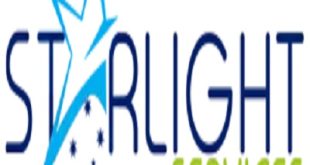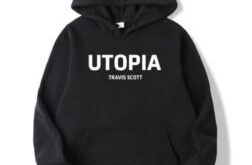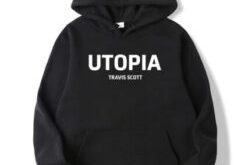The concept of tokenizing real-world assets (RWA) is revolutionizing how we interact with physical investments. Real-world asset tokenization involves converting tangible assets—such as real estate, commodities, or intellectual property—into digital tokens on a blockchain. These tokens represent fractional ownership, enabling broader access, enhanced liquidity, and seamless global trading.
In this article, we will explore what real world asset tokenization is, its benefits, potential use cases, and challenges, while also shedding light on its transformative role in modern finance.
What is Real World Asset Tokenization?
Real-world asset tokenization is the process of creating digital tokens that represent ownership or rights to physical assets. These tokens are recorded and traded on blockchain networks, ensuring security, transparency, and efficiency.
For example, tokenizing a commercial building allows investors to own a fraction of it by purchasing tokens, enabling participation without needing significant capital. Tokenization democratizes investment opportunities that were previously limited to wealthy individuals or institutions.
The Benefits of Tokenizing Real-World Assets
Fractional Ownership
Tokenization allows assets to be divided into smaller, affordable units. This opens doors for retail investors to participate in high-value asset classes like luxury real estate or art.
Enhanced Liquidity
Traditionally illiquid assets, such as property or collectibles, gain liquidity as tokens can be traded on secondary markets, making it easier to buy or sell ownership.
Global Market Access
Blockchain removes geographical barriers, enabling investors from different regions to participate in tokenized assets effortlessly.
Cost Efficiency
By reducing the need for intermediaries (e.g., brokers, notaries), tokenization lowers transaction costs and speeds up processes.
Transparency and Security
Blockchain’s immutable ledger ensures every transaction is recorded transparently, enhancing trust and reducing the risk of fraud.
Use Cases for Real World Asset Tokenization
1. Real Estate
Real estate is one of the most prominent applications of tokenization. Investors can own shares in residential, commercial, or industrial properties without buying entire assets. Tokenized real estate allows developers to raise capital more efficiently while providing investors with new opportunities.
2. Art and Collectibles
Tokenizing high-value art pieces or collectibles enables fractional ownership, making these assets accessible to a broader audience. Investors can own a share of a Picasso painting or a rare vintage car.
3. Commodities
Assets like gold, oil, or agricultural products can be tokenized for easier storage, trading, and ownership transfer, democratizing access to these historically restricted markets.
4. Debt and Securities
Tokenized bonds, loans, or equity shares can provide a more transparent and efficient way for investors to engage with financial instruments.
5. Renewable Energy Projects
Infrastructure projects, such as solar farms or wind turbines, can be tokenized, enabling individuals to invest directly in sustainable initiatives.
How Does Real-World Asset Tokenization Work?
Asset Valuation and Legal Framework
The physical asset is appraised, and its ownership or associated rights are legally defined. This is critical to ensuring tokens represent valid claims.
Token Creation
The asset’s value is divided into tokens, each representing a fraction of ownership. These tokens are then issued on a blockchain platform.
Trading and Liquidity
Tokens can be traded on digital marketplaces or secondary exchanges. Blockchain ensures transactions are secure, transparent, and traceable.
Regulatory Compliance
Smart contracts enforce rules, such as eligibility for investors or dividend distribution, ensuring compliance with local and international regulations.
Challenges in Real-World Asset Tokenization
Regulatory Uncertainty
Tokenization is subject to varying regulations across jurisdictions, creating challenges in global adoption and market consistency.
Technological Barriers
Many investors and institutions lack familiarity with blockchain technology, slowing adoption rates.
Security Concerns
While blockchain is secure, vulnerabilities in smart contracts or wallet management can pose risks to token holders.
Market Volatility
Token prices can fluctuate based on demand, market conditions, or the value of the underlying asset, introducing risks similar to traditional investments.
Lack of Standardization
The absence of global standards for tokenization processes and platforms can result in inefficiencies and reduced investor trust.
The Role of Blockchain in RWA Tokenization
Blockchain is the backbone of asset tokenization, providing a decentralized, secure, and transparent platform for transactions. Key features include:
Immutability: Transactions cannot be altered once recorded, ensuring data integrity.
Smart Contracts: These automate processes like ownership transfers or dividend payouts, reducing reliance on intermediaries.
Interoperability: Blockchain networks can connect different markets, enabling seamless trading of tokenized assets.
Platforms like TokenizeGlobal Solutions are at the forefront of this revolution, offering secure and compliant solutions for tokenizing real-world assets.
The Future of Real-World Asset Tokenization
Real-world asset tokenization is poised to transform global finance. Several trends and advancements are shaping its future:
1. Integration with Decentralized Finance (DeFi)
Tokenized assets will increasingly integrate with DeFi platforms, allowing investors to lend, borrow, or stake tokens for additional returns.
2. Improved Regulatory Frameworks
As governments and financial institutions recognize the potential of tokenization, clearer regulations will emerge, fostering greater adoption.
3. Focus on ESG Investments
Tokenization will facilitate funding for environmentally and socially responsible projects, appealing to conscious investors.
4. Mainstream Adoption by Institutions
Financial institutions are beginning to explore tokenization as a tool for asset management, trading, and raising capital.
5. Technological Innovations
Advancements in blockchain, such as increased scalability and interoperability, will make tokenization more efficient and widely accessible.
Conclusion
Real-world asset tokenization represents a significant leap forward in democratizing access to tangible investments. By leveraging blockchain technology, it breaks down traditional barriers, allowing investors to participate in high-value assets with greater flexibility, transparency, and security.
 Daily Blogger News Stay updated with the latest trends and insights. Your reliable source for daily updates and information.
Daily Blogger News Stay updated with the latest trends and insights. Your reliable source for daily updates and information.







